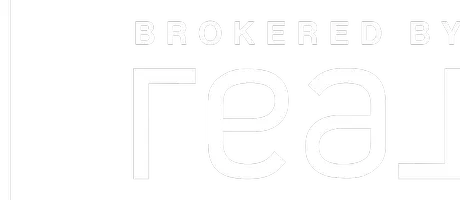MARKET SNAPSHOT
Here are the numbers for Missouri. How is your neighborhood doing?
Dial in your area and get a custom report.
Understanding Missouri Mortgage Rates: What Buyers Need to Know
by Cara Turek

Navigating the world of real estate can be a daunting task, especially for first-time buyers. One of the most critical aspects to consider when purchasing a home in Missouri is understanding mortgage rates. These rates can significantly impact your monthly payments and overall financial health. This blog aims to provide valuable insights into Missouri mortgage rates and what buyers need to know before making their big purchase.
What Are Mortgage Rates?
Mortgage rates refer to the interest charged on a mortgage loan, expressed as a percentage of the total loan amount. These rates can fluctuate based on various factors, including economic conditions, inflation, and the Federal Reserve's monetary policy. For buyers in Missouri, understanding how these rates work is essential for making informed decisions.
Current Trends in Missouri Mortgage Rates
As of late 2023, mortgage rates in Missouri have seen some fluctuations due to changes in the national economy. While they vary from lender to lender, it’s crucial for buyers to stay updated on current trends. Generally, higher mortgage rates mean higher monthly payments, which can affect your budget and purchasing power.
To get an accurate picture of current rates, potential buyers should consult multiple lenders and consider using online tools that aggregate data from various sources. This approach helps identify competitive offers and provides a clearer understanding of where to find the best rate.
Factors Influencing Mortgage Rates
Several factors influence mortgage rates in Missouri:
-
Economic Conditions: The overall state of the economy plays a significant role in determining mortgage rates. When the economy is strong, demand for loans increases, leading to higher interest rates. Conversely, during economic downturns, lenders may lower their rates to stimulate borrowing.
-
Credit Score: Your credit score is one of the most critical factors lenders consider when determining your mortgage rate. A higher credit score typically results in lower interest rates because it signals to lenders that you are a less risky borrower.
-
Loan Type: Different types of loans come with varying interest rates. For example, conventional loans may have different terms compared to FHA or VA loans. Understanding these differences can help you choose the right loan type for your situation.
-
Loan Duration: The length of your mortgage also affects your rate. Generally, shorter-term loans (like 15 years) have lower interest rates than longer-term loans (like 30 years). However, shorter terms come with higher monthly payments.
-
Down Payment: The size of your down payment can also influence your mortgage rate. A larger down payment reduces the lender's risk and may result in a lower interest rate.
The Importance of Shopping Around
One of the most effective ways to secure a favorable mortgage rate is by shopping around among different lenders. It’s advisable to obtain quotes from at least three or four lenders before making a decision. Pay attention not only to the interest rate but also to other fees associated with obtaining a mortgage, such as origination fees and closing costs.
Another strategy is to get pre-approved for a mortgage before starting your home search. Pre-approval gives you a clearer picture of what you can afford and locks in your rate for a certain period, protecting you from potential increases while you shop for homes.
Understanding Points and Fees
When discussing mortgage rates with lenders, you'll often encounter terms like "points" and "fees." Points are upfront payments made to reduce your interest rate over the life of the loan; one point equals 1% of the loan amount. While paying points can lead to long-term savings on interest payments
, it requires additional cash upfront.
It's essential for buyers in Missouri to weigh these options carefully—considering both immediate cash flow needs and long-term financial goals—before deciding whether paying points makes sense for their situation.
The Role of Local Market Conditions
Missouri's real estate market has unique characteristics influenced by local economic conditions and housing demand. Areas with high demand may see slightly higher mortgage rates due to competition among buyers. Conversely, regions with slower sales might offer more favorable terms as lenders strive to attract borrowers.
Understanding local market dynamics will help you gauge how competitive you'll need to be when securing financing for your new home.
Conclusion
Understanding Missouri mortgage rates is crucial for any buyer looking to navigate the real estate landscape effectively. By staying informed about current trends, considering the various factors that influence rates, shopping around among lenders, and being aware of local market conditions, you'll be better equipped to make sound financial decisions as you embark on this exciting journey toward homeownership.
With careful planning and research, you can secure a favorable mortgage rate that aligns with your budget and financial goals—bringing your dream home within reach!
Recent Posts




